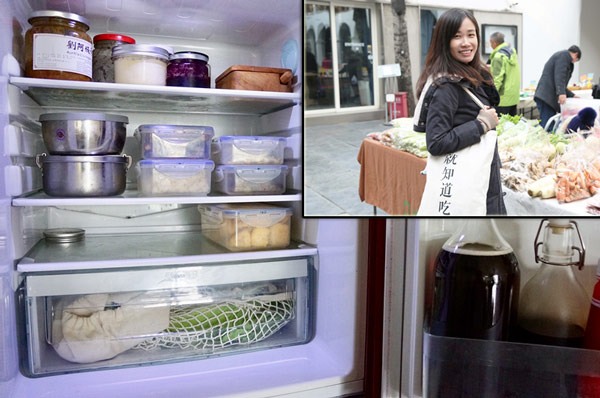More Chinese choose 'zero waste' lifestyle


When the project began, all plastic bags were banned from local businesses, and public dumpsters were removed. Instead, every household was given two sorting bins and two boxes to separate their waste, kitchen waste was fermented to become fertilizer and enzyme products, recyclables were recycled, and toxic and harmful materials were handled by professional services. The remaining waste -- less than 30 percent of the total -- was gathered and handed over to municipal services for disposal.
Xinzhuang's pillar trade comes from its 560 strawberry plantations. An experiment with natural fertilizers made from kitchen waste and excrement resulted in better-tasting fruit that contained no chemical residue.
The village has become a hot destination among urbanites who come to pick organic strawberries, and the plantations have increased their revenue by 10,000 yuan (about $1,560) each per harvest season.
Earlier this year, another township in the eastern Jiangxi Province signed an agreement with an expert team to start trials in 55 villages in hopes of cutting the amount of garbage by 40 percent in a year.
OPTIMISM AND CHALLENGES
China's Ministry of Ecology and Environment on Tuesday issued an eco-friendly behavioral norm for citizens (trial) advocating eco-friendly behavior.
The code of conduct was promoted by the ministry along with the Ministry of Education and three other government agencies.
The document listed 10 ways to improve the environment in everyday life, such as not keeping up with rapid electronics upgrades, choosing reusable shopping bags, water bottles and low-carbon transportation, sorting garbage and protecting wildlife and vegetation.
"I am confident that each day, a wider public is willing to make efforts to protect the environment and implement a green lifestyle," said Dr. Mao Da, scholar in environmental history with Beijing Normal University and an advocate of the Zero Waste Alliance, a non-profit group that has been promoting waste reduction and eco-conscious lifestyles in China.
"Zero Waste Alliance" has been hosting "citizen forums" and workshops all over the country to share and exchange experience in reducing waste and sorting garbage.
"A harsh reality that we have ahead is that with the rapid development of materialistic consumerism, society as a whole has become more extravagant and more wasteful," lamented Mao.
"We encourage people to live according to the 5R Principle: refuse, reduce, reuse, recycle and rot. But there is a sixth R that is also vitally important to the cause: redesign," he said, pointing out that producers must commit to making eco-friendly products and take responsibility for recycling these products to keep non-treatable waste at a minimum.




































